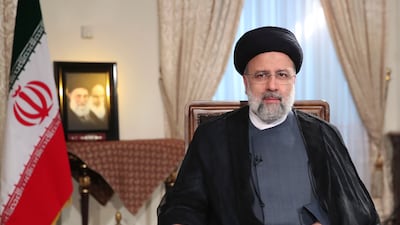Twenty-five Nobel prize winners are calling on UN Secretary General Antonio Guterres to set up a new investigation into the massacres 33 years ago of thousands of prisoners in Iran.
The group, which includes 1996 peace prize winner Jose Ramos-Horta, said the inquiry was needed more than ever because of the role of new president Ebrahim Raisi in death committees that sent regime opponents to the gallows.
An estimated 5,000 inmates, mainly those linked to the Mujahideen-e-Khalq opposition movement and left-wing critics, were killed in 32 cities in a matter of weeks at the end of the Iran-Iraq war.
The fatwa was signed by former Iranian supreme leader Ayatollah Ruhollah Khomeini to punish members of a group that had originally backed the 1979 revolution but then turned against the regime and sided with Iraq during the war.
“We underscore the need to set up an international commission by the United Nations to investigate this enormous crime,” the group wrote in the letter.
One of the signatories was Richard Roberts, the 1993 Medicine laureate, who has been involved in other collective justice campaigns by Nobel prize winners.
Representing more than 100 laureates, he travelled to Libya in 2007 to help secure the release of five Bulgarian nurses and a Palestinian doctor who had been found guilty of deliberately infecting more than 400 children with HIV as part of an Israeli secret service plot.
“This issue is something that’s quite appalling and not widely known about,” he said. “It should be high time the UN looked into it to see if there’s something they could do.
“What happened was awful - and now the man who orchestrated it is in a leadership position in Iran, which makes it worse.”
The letter is the latest attempt to persuade the UN to launch a commission of inquiry, a fact-finding mission that has previously been used to launch criminal prosecutions in Europe. The UN has used the tool 33 times since 2006, including in Gaza, Libya and Syria.
More than 40 former UN officials, including former human rights chief Mary Robinson, in May called for such an inquiry. Seven senior UN officials said last year they would also push for a commission after Iran failed to answer their questions over the deaths, including the locations of their graves and demands for death certificates.
Mr Raisi has been accused by former prisoners of being a member of the two and three-man “death committees” that ordered the killings of thousands who failed tests of loyalty to the regime after hearings that lasted just a few minutes.
One former prisoner, Reza Fallahi, has told The National that Mr Raisi was “one of the people trying his best to get more people killed".
Mr Fallahi is a witness for a trial in Sweden of a former regime official, who is accused of war crimes and more than 100 murders in connection with the prison massacres.
Hamid Nouri, who denies wrongdoing, was arrested in 2019 after he flew to Sweden to see his daughter to resolve a domestic dispute. The trial is expected to continue into 2022.


